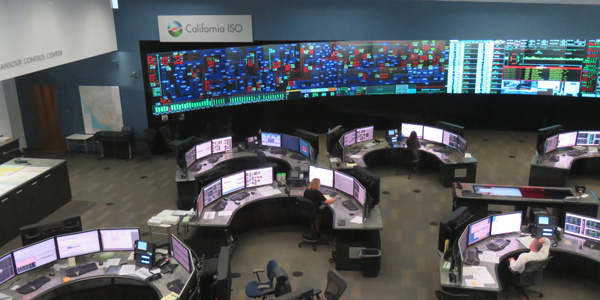By Jason Fordney
Delaware-based trading company ETRACOM agreed to pay $1.9 million to settle allegations that it manipulated CAISO markets in a scheme that netted the company $315,000 in profits.
But the company also issued a statement Tuesday dismissing the allegations by FERC’s Office of Enforcement as “absurd theories.”
An April 10 FERC order approving a consent agreement (IN16-2) with ETRACOM shows the company and principal trader Michael Rosenberg — also a respondent but not listed as paying the fine — neither admitted nor denied the accusations. ETRACOM agreed to pay the fine for submitting virtual supply transactions intended to reduce the day-ahead LMP and increase congestion at the New Melones intertie in 2011.
FERC in 2016 sought a $2.4 million civil penalty from the company and a $100,000 penalty from Rosenberg in addition to disgorging profits. (See FERC Seeks $2.5M Fine in CAISO Market Manipulation.) ETRACOM said Tuesday that FERC had “dropped its long-standing position that an individual trader in this case be assessed a civil penalty.”
The commission said the agreement “is a fair and equitable resolution of the matters concerned and is in the public interest, as it reflects the nature and seriousness of the conduct and recognizes the specific considerations” stated in the agreement, which is not subject to appeal.
The decision specifies disgorgement by ETRACOM of $315,000 plus interest of $84,000 to be paid to CAISO for distribution to market participants impacted by the company’s trading.
In the order, the commission noted it had filed a lawsuit in U.S. District Court for the Eastern District of California to request an order affirming the penalties. In its statement, ETRACOM said it had opposed the lawsuit and been victorious in winning full discovery rights under a de novo standard of review, entering mediation with FERC to produce the settlement.
ETRACOM said it “opposed Enforcement’s brazen misinterpretation and manipulation of the record; absurd theories which rest on reverse engineering of conclusions to produce a ‘fraud by hindsight;’ reliance on circumstantial inferences unhinged from the facts; ignoring of significant exculpatory evidence; and inappropriate ‘sandbagging’ in reply to ETRACOM filings.”
It added that “regardless of the outcome of our case, ETRACOM remains optimistic on the role of FERC in regulating and enforcing energy markets and on long-term reform of the enforcement process.” The company agreed to develop and implement a compliance program based on FERC’s November 2016 “Staff White Paper on Effective Energy Trading Compliance Practices.”
FERC Enforcement alleged that in May 2011, ETRACOM submitted and cleared uneconomic virtual supply transactions intended to artificially lower the day-ahead LMP and create import congestion at New Melones. ETRACOM’s virtual supply offers resulted in a $42,481 loss, while FERC staff estimate the company earned $315,000 in profits on its congestion revenue rights positions. Staff estimated the alleged scheme resulted in the market overpaying all New Melones CRR source holders, including ETRACOM, $1.5 million. The overpayment was funded by New Melones CRR sink holders and revenue inadequacy.
The company has long contended that the losses were because of market flaws and that it had rationally attempted to profit from a record hydro event in May 2011 that caused congestion at the New Melones intertie node. But FERC argued that market flaws were irrelevant to the case. (See FERC: Market Flaws Irrelevant to Case.)
ETRACOM pointed to an investigation that “dragged on for over five years and which saw a kaleidoscope of lead attorneys and their bosses with the diffusion of individual responsibility becoming the norm at Enforcement.” The company’s legal and subject matter team was also extensive, including Robert Fleishman of Morrison & Foerster, Matthew Connolly of Nutter McClennen & Fish and former FERC Chairman William Massey, now of Covington & Burling.
The agreement represents one of a series of high-profile challenges by market participants to FERC Enforcement against alleged market manipulation, including a case against Powhatan Energy Fund that resulted in the agency having to conduct a de novo review. (See FERC Loses Again on ‘De Novo’ Review.) Last November, FERC agreed to heavily reduce a fine against Barclays Banks for market manipulation in Western markets years ago. (See FERC Settlement Cuts Barclays Market Manipulation Fine.)
CRRs have been a major subject of debate in CAISO in recent years as the ISO moves to restructure its markets over what it says are hundreds of millions of dollars in payment deficiencies being footed by electricity consumers. CAISO’s Board of Directors approved one package of CRR reforms last month and the ISO has additional phases in development. (See CAISO Developing New CRR Proposal.)



